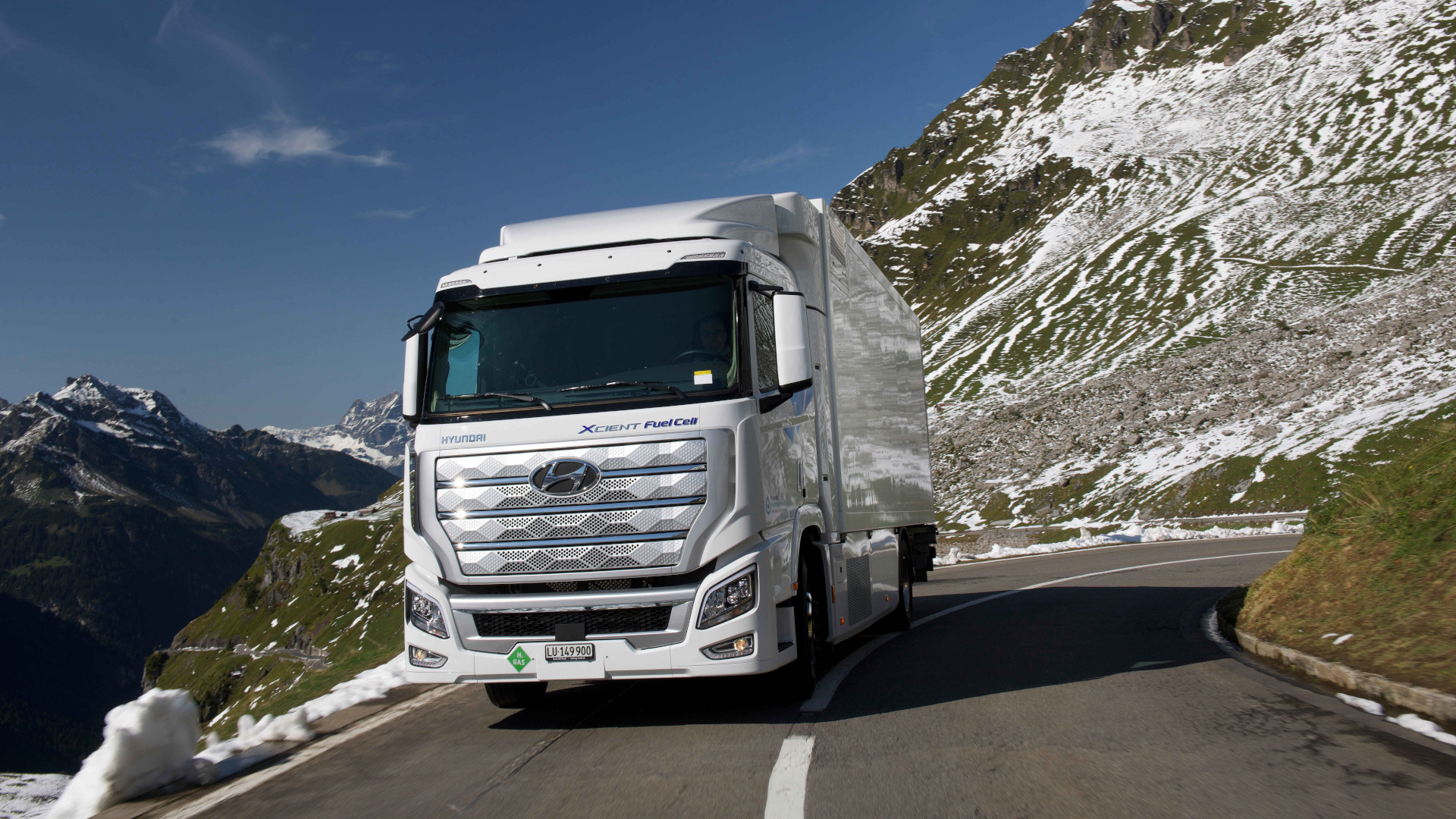

After largely disappearing from public consciousness for a while, hydrogen fuel cell technology has been coming back in big way in recent years. Hyundai has been a major part of this push, developing several hydrogen-powered cars and bringing them to market in the limited areas where refueling infrastructure exists. On a bigger scale, however, the Korean company has just announced in a press release that their fleet of fuel cell trucks have now racked up over 1 million kilometers in the last 11 months.
Hyundai’s XCIENT Fuel Cell trucks are part of the company’s efforts to explore hydrogen as a useful transport fuel. 46 trucks were delivered to Switzerland, where they have served in a variety of delivery, logistics, and supermarket fulfillment roles, according to Hyundai. The latter just sounds like delivery and logistics for supermarkets in particular, but we won’t split hairs here. The rigid trucks, built in 4×2 and 6×2 configurations, have thus racked up an average of almost 22,000 km each.

With 25 Swiss companies employing the trucks for regular duties, Hyundai reports that the XCIENT was praised for its long range and short refueling times. The company also claim that the vehicles saved 631 tons of carbon dioxide emissions relative to equivalent diesel-fueled trucks. It’s not clear whether this claim takes into account the source of the hydrogen fuel used. Green hydrogen, produced using renewable energy in an electrolysis process, nets the greatest environmental benefit, effectively putting out zero carbon emissions systemwide. However, producing hydrogen from fossil fuel sources is not nearly as effective at reducing net greenhouse gas emissions, regardless of the output from the tailpipe of the truck itself.
Hyundai plans to ship another 140 trucks this year, while aiming to grow the fleet to 1600 vehicles by 2025. That might sound like a lot, but the overarching goal is even bigger. The company hopes to grow annual sales of hydrogen vehicles to 110,000 by 2025, just four years away. The aim is also for the broader Hyundai Motor Group to increase production capacity to 500,000 fuel cell vehicles a year by 2030. This statement likely includes related brands like Kia and Genesis in the broader total. Truck tractors are also on the way, as Hyundai is eager to tackle the North American market.
The trucking market is uniquely suited for hydrogen fuel cell vehicles. Energy demands are high and schedules tight, so refueling must be fast. Limited public infrastructure is not a big problem, either, as trucks can simply refuel at purpose-built facilities at logistics depots. Both of these strengths suggest hydrogen could be a useful fuel for trucks going forward. However, with battery electric vehicles already boasting ranges in excess of 400 miles, and recharging times continuing to drop, the average commuter might not find room for a fuel cell car any time soon. For the trucking industry, though, it could be a much cleaner option than diesel in the near future.
Got a tip? Let the author know: lewin@thedrive.com